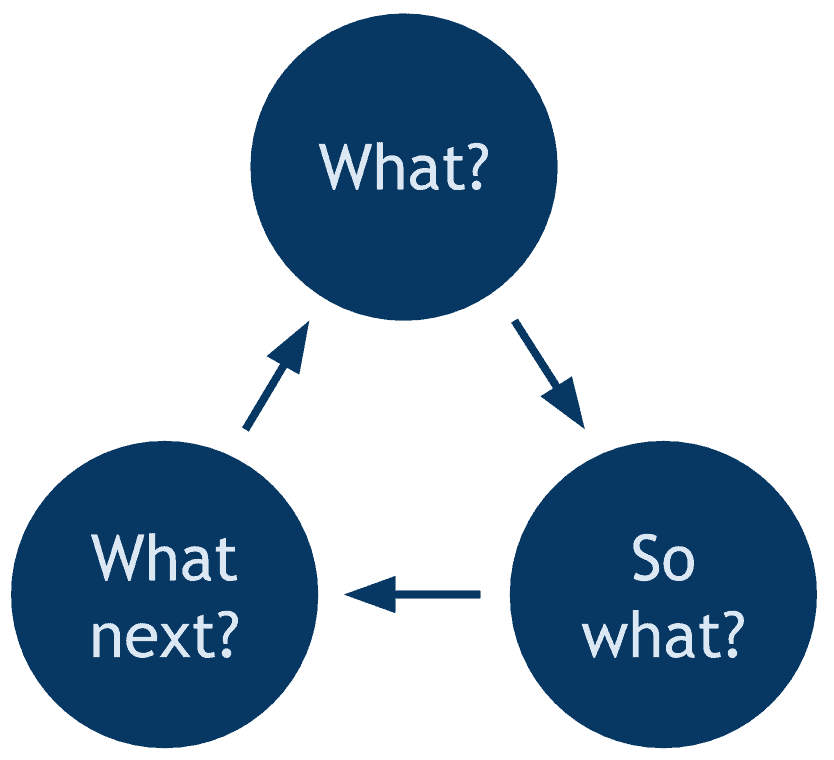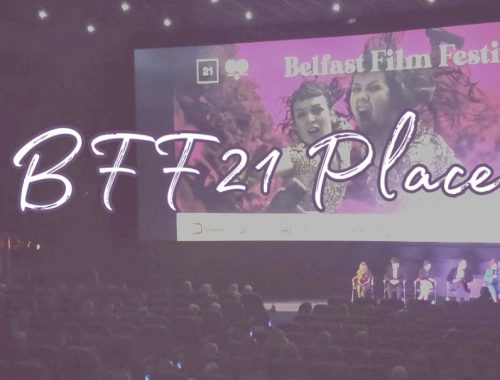1st Blog Post: Reflective Practice and Preparation

Provisionally in June 2022, I will be Assistant Director for a Theatre Performance exploring American soldiers in World War 2. While this opportunity will hopefully be very beneficial, it raises an important question, how do I self-reflect on a practice that has arguably only begun? One angle to take is to consider the preparation for the role, as directors are, “primarily responsible for all artistic issues in a production.” (Donahue, 20). Preparing for this role, I decided to use Borton’s model to reflect on my practice and preparation. This model is useful as it focuses on recognition (what?) and assessment (so what?) that leads to action (now what?). This model of reflection works well for preparing for a role because it aims to address the future, which is valuable as, “Thinking about what you need to achieve is as significant as any of the experiences you have already had.” (Jasper, 13) Through reflecting on my preparation, I can then evaluate my practice and easily identify on what areas should be my focus moving forward.
Research:
One of the main areas being covered in preparation to be Assistant Director is to do research for the production itself. With the idea revolving around American soldiers in World War Two that were stationed in Northern Ireland, it is important to make sure that the historical details are accurate and properly reflect the attitudes of the time. One example of this is that in Northern Ireland conscription was not in place for men, which was done, “on the grounds that it would cause more trouble that it was worth.” (Black, 6) This meant that those men how joined the war effort from Northern Ireland would have done so voluntarily, with many deciding to stay due to their political or religious background. In evaluation of this research, many of these details will provide a guide to creating the story and characters of the piece. Historical backgrounds used can influence how characters will inevitably conflict in their goals, which could create a piece that is as entertaining as it is educational. However, I must not just evaluate the positives of my research, this reflection should also consider improvements that need to be made as, “you can anticipate your learning needs and plan to use your time more effectively.”(Jasper, 13) One instance of this upon evaluation is the lack of information relating to American soldiers in World War Two. Without considering both sides of this production, it will run the risk of appearing one sided and bias, this is not a part of the Director’s vision, and my research should mirror this. Another critique of my research is that it has mainly been occupied with documents and written resources. While this kind of research is valuable in the context it provides, it does struggle to offer an experience of individuals. To remedy this, I should try looking into the many trails and historical venues which could show what people of the time went through, where they were and who they are. Overall, the action required for my research is mainly to cover things that I initially had not considered when starting, such as the American perspective and how it felt to be there during these events.

Workshop Preparation:

Another focus in preparation for this project is preparing a workshop to gain interest in students who would wish to be involved in the project. This could also help in ultimately finding people who wish to ultimately become creatively involved in the project, such as actors who would be, “working with director and other actors to develop an effective performance.” (Donahue 28) Through planning, I have made considerations to what time would be suitable to students and how to effectively advertise this workshop so it can be found by students. Upon reflection, the reason why this planning is important is that it relates to other important roles in the theatre industry, greatly expanding the value of this experience. This can specifically be seen in the role of a Casting Director, where using my connection to my course to find potential actors relates to finding, “talent that is available.” (Donahue, 28) Extensive planning of advertising will make sure that it is catered to the relevant talent or passionate individuals needed for this project. The next action that would need to be taken is to advertise the workshop through emails and word of mouth, as well as getting feedback from students to see what they would desire from the project.
In retrospect of this reflective process, it has already begun to be incredibly beneficial even at such an early stage of the process. Reflecting on my own practices has given me the opportunity to evaluate the areas that have work well for me and what has needed improvement. While this process will be helpful at many points of the placement, it has been particularly helpful early on as it has allowed me to find areas of weakness before they could have hindered the project itself. This integral to reflective practice, where the strength lies in, “enabling you to develop the practical skills necessary to reach the standards for registration as a practitioner.” (Jasper, 1) The next action in my reflective process will be to apply this methodology to the production process of this performance, allowing me to find new opportunities to learn.
Works Cited:
- Black, Boyd. “A Triumph of Voluntarism? Industrial Relations and Strikes in Northern Ireland in World War Two.” Labour History Review (Maney Publishing), vol. 70, no. 1, Apr. 2005, pp. 5–25.
- Donahue, Tim, and Jim Patterson. Theater Careers. [Electronic Resource] : A Realistic Guide. University of South Carolina Press, 2012.
- Jasper, Melanie. Beginning Reflective Practice. Nelson Thornes, 2003.
Link to blog: https://blogs.qub.ac.uk/ael3001-2021/2021/11/26/1st-blog-post-reflective-practice-and-preparation/
You May Also Like

Learning from experience- Am I on the right track?
28 November 2021
Breaking into the Film Industry: What You Know or Who You Know?
24 November 2021
